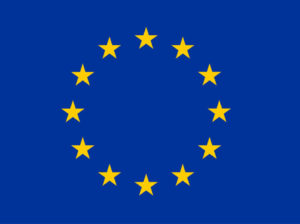Summary
The Institute of Child Health (GR) (coordinator), the University of Nicosia (CY), the Kazimieras Simonavičius University (LT) and Defence for Children International-Italia (IT) have successfully implemented the project entitled “Alliance for children on the Move: Standard Operating Procedures for Guardians” [REC-CHILD-AG-2016/764244-ASOP4G, which was co-funded by the European Union’s Rights, Equality and Citizenship Programme (2014-2020). The project took place from 8.01.2018 until 7.01.2020.
The ASOP4G project’s main objectives were:
- to improve guardians’ knowledge, capacity and skills by providing them continuous training on a wide range of topics;
- to strengthen the role of the guardian in each country by developing SOPs, and crystallising the essence of guardian’s mandate;
- to enhance interagency cooperation and understanding of each part’s mandate and in this way support the establishment of a comprehensive child protection system;
- to establish and implement common child rights-based standards on guardianship in the four EU countries represented by the consortium that could be further adapted to more national contexts and thus contribute to a more harmonized and high-standard treatment of unaccompanied children;
- to reinforce children’s transnational protection in cross-border movement, and
- to safeguard the rights of unaccompanied children and promote their well-being.
Activities taking place during the two years of ASOP4G project’s life had a national and regional-level focus with a more extensive effect.
The project’s core activities were a) an 8-month training process for guardians and other professionals acting as guardians in practice (foundation trainings, continuous training workshops), b) meetings and workshops organized by each partner and a conference, where professionals from all fields and levels of hierarchy gained a better understanding on the need and terms of cooperation among them towards safeguarding the best interests of the child, c) the development of a comprehensive toolkit for the guardian to support their work and safeguard children’s rights informed by guardians’, experts’ and children’s consultation (Handbook on Standard Operating Procedures for Guardians, Index of international, European and national legal framework, Brochure for children about guardian’s role); d) development of a comprehensive toolkit for the national agency responsible for the capacity-building, supervision and recruitment of guardians (Trainers manual, accreditation procedure for the selection of guardians; brochure for professionals engaged in the protection of unaccompanied minors about the role of the guardian).
The project’s major contribution has been the support provided to national guardianship systems by continuously training guardians and other professionals involved in the protection of unaccompanied children, by providing a complete training module and trainers’ manual for delivering a foundation training to guardians, by developing SOPs for guardians to fully represent the child and promote his/her best interests, by producing evidence-based selection criteria for guardians, by strengthening interagency cooperation as well as cross-border cooperation among guardians and by involving children in the system’s evaluation.
The content of the website represents the views of the authors only and is their sole responsibility. The European Commission does not accept any responsibility for use that may be made of the information it contains.

Co-funded by the European Union’s Rights, Equality and Citizenship Programme (2014-2020)